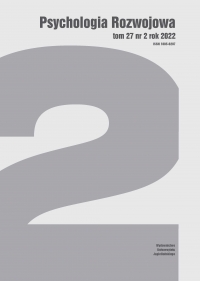Prężność rodzinna – aspekty teoretyczne i praktyczne
Family Resilience – Theoretical and Practical Aspects
Author(s): Joanna Matuszczak-ŚwigońSubject(s): Culture and social structure , Family and social welfare
Published by: Wydawnictwo Uniwersytetu Jagiellońskiego
Keywords: family resilience; family resilience model; family resources;
Summary/Abstract: Since 1930, there has been a shift from an interest only in the resilience of the individual to analyzing it in relation to the family as well. Family resilience is a process of positive adapta- tion of the entire family and its members, and effective coping with life’s adversities (Luthar et al., 2000). In addition to coping with the demands, family resilience enables development in the face of serious life challenges (Walsh, 2006, 2016). Using the key processes of resilience, a fam- ily facing difficulties can emerge stronger and more resourceful in the face of future challenges. Froma Walsh (2013) distinguishes three overarching domains of family resilience: the belief sys- tem, the organizational patterns of family life, and the communication and problem-solving pro- cess. Research on the post-traumatic growth indicates that a crisis can be a serious warning that increases family’s attention to the core values and important life issues; an opportunity to reassess life priorities that initiates the allocation of more time and attention to meaningful relationships (Tedeschi, Calhoun, 2004). The article presents the definitions and the history of the concept of family resilience. The Walsh model of family resilience is also presented and the practical impli- cations of the model are discussed.
Journal: Psychologia Rozwojowa
- Issue Year: 27/2022
- Issue No: 3
- Page Range: 37-47
- Page Count: 11
- Language: Polish

